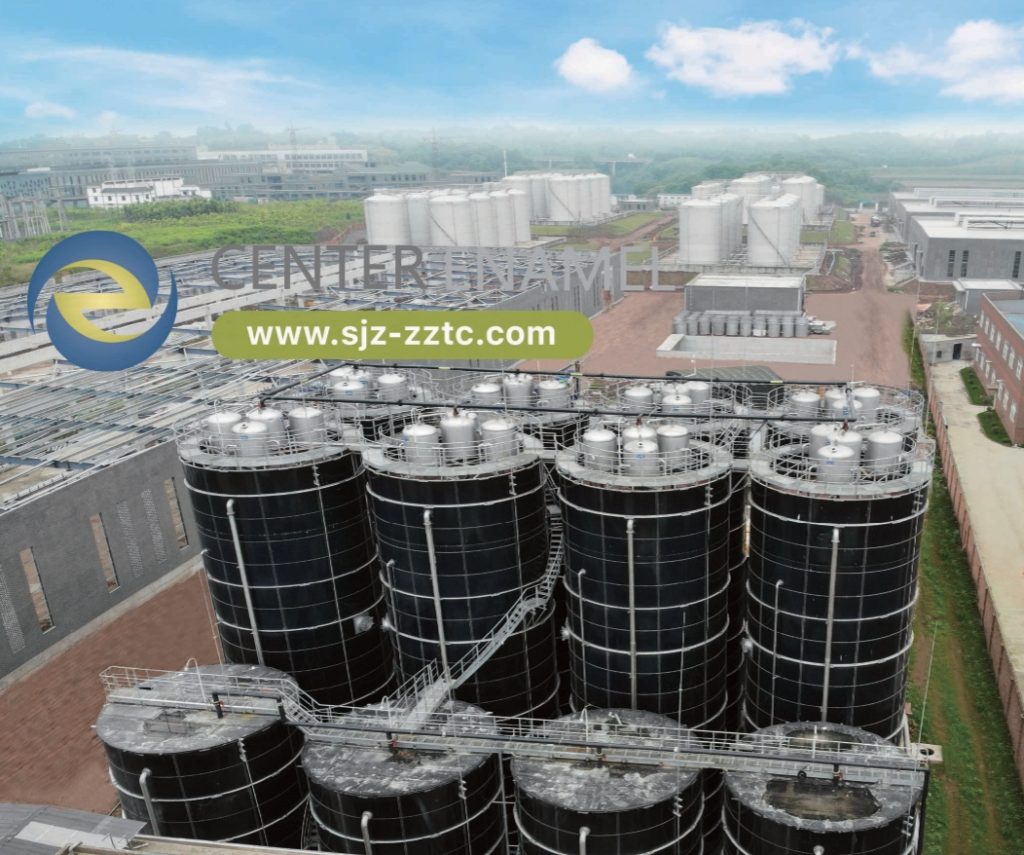IC Systems for Sustainable Wastewater Treatment in Wine Production | Center Enamel

The modern wine industry faces increasing pressure to adopt sustainable practices throughout the production process. Among the challenges encountered is the effective treatment of wastewater generated during grape processing and vinification. Center Enamel’s IC systems offer an innovative solution for sustainable wastewater management in wine production, providing enhanced treatment efficiency, environmental compliance, and long-term operational reliability.
Wine production inherently generates wastewater with complex characteristics. The effluent typically contains high levels of organic compounds, sugars, phenolic substances, and residual cleaning agents. These constituents not only contribute to a high biochemical oxygen demand (BOD) but also pose risks of odor and potential contamination if not treated adequately. Traditional treatment methods often struggle with the variability and concentration of these pollutants, leading to inefficiencies and higher maintenance costs. In this context, adopting advanced technologies like IC systems becomes critical to achieving both environmental sustainability and operational efficiency.
Internal Circulation (IC) systems are engineered to optimize the treatment process by promoting effective mixing and enhanced contact between wastewater and microbial cultures. In an IC system, wastewater is continuously circulated within a reactor, ensuring a uniform distribution of organic matter and oxygen. This design supports a stable microbial environment, which is essential for the efficient breakdown of complex organic compounds.
Key technical aspects of IC systems include:
- Enhanced Mixing and Contact: The continuous circulation within the reactor ensures that all wastewater components are evenly exposed to active microorganisms. This leads to improved degradation of organic pollutants and higher overall treatment efficiency.
- Optimized Hydraulic Retention Time (HRT): By fine-tuning the circulation rate, IC systems maintain an optimal HRT that maximizes biogas production and nutrient removal, while minimizing the formation of undesirable by-products.
- Energy Efficiency: The design of IC systems minimizes the need for additional aeration or mechanical mixing, resulting in lower energy consumption compared to conventional wastewater treatment methods.
Benefits of IC Systems for Sustainable Wine Production
Implementing IC systems in the wastewater treatment process offers several advantages for wineries:
- Improved Treatment Performance:
The robust mixing and optimized retention time enable a higher removal rate of organic pollutants. This is crucial for wine production wastewater, where the concentration of sugars and phenolic compounds can vary significantly. By maintaining a consistent treatment environment, IC systems ensure that the effluent meets stringent discharge standards. - Enhanced Operational Stability:
Wine production processes can fluctuate seasonally and even daily. IC systems are designed to handle these variations, providing reliable performance regardless of changes in wastewater composition. This stability not only ensures compliance with environmental regulations but also reduces the risk of process upsets that could impact production. - Reduced Environmental Footprint:
By efficiently treating wastewater on-site, wineries can minimize the release of harmful pollutants into local water bodies. Moreover, the energy savings associated with IC systems contribute to a lower overall carbon footprint, aligning with the broader sustainability goals of the agricultural sector. - Cost-Effective Operation:
The efficiency gains provided by IC systems lead to reduced operational costs over time. Lower energy consumption, decreased maintenance requirements, and the potential for on-site resource recovery—such as biogas generation—translate into tangible economic benefits for wineries.
Center Enamel’s Approach to Sustainable Wastewater Treatment
At Center Enamel, we combine decades of experience in industrial tank and system design with cutting-edge wastewater treatment technologies. Our IC systems are developed to meet the unique demands of the wine production industry. Key features of our approach include:
- Custom Engineering:
Recognizing that no two wineries are alike, our systems are fully customizable. We work closely with clients to assess specific wastewater characteristics and design a system that optimally integrates with existing production processes. - Advanced Materials and Precision Manufacturing:
Our IC systems are constructed using high-quality, corrosion-resistant materials that ensure long-term durability even under challenging operating conditions. Precision engineering allows us to deliver systems that consistently meet international quality standards. - Integration with Renewable Energy Solutions:
Many of our IC systems can be configured to capture and utilize biogas produced during the wastewater treatment process. This not only enhances energy efficiency but also contributes to the winery’s sustainability portfolio by converting waste into a valuable energy source. - Compliance and Environmental Stewardship:
Our solutions are designed with regulatory compliance in mind. By achieving high levels of pollutant removal and resource recovery, our IC systems help wineries meet or exceed local and international environmental standards.
Economic and Environmental Implications
The integration of IC systems in wine production wastewater treatment extends beyond operational efficiency—it also carries significant economic and environmental benefits:
- Operational Cost Savings:
The energy-efficient design and reduced maintenance requirements of IC systems lead to lower operational expenditures. Over the lifecycle of the treatment system, these savings can be substantial, improving the overall profitability of the winery. - Enhanced Resource Recovery:
The effective breakdown of organic matter not only treats the wastewater but also facilitates the generation of biogas. This renewable energy source can be used to power on-site operations, further reducing dependency on external energy supplies and lowering greenhouse gas emissions. - Sustainable Water Management:
By ensuring that treated effluent meets high-quality standards, wineries can reuse water for non-potable applications, such as irrigation. This contributes to more sustainable water management practices, particularly important in regions where water scarcity is a concern.
By choosing Center Enamel’s IC systems, wine producers can confidently address the challenges of wastewater management while contributing to a greener, more sustainable future for the agricultural sector. For further information on our tailored solutions and how they can be integrated into your wine production facility, please contact Center Enamel.
